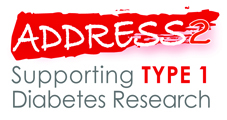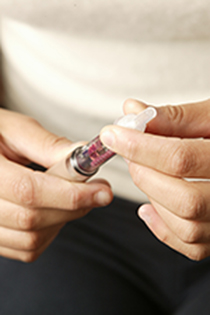This study showed that giving adults newly diagnosed with type 1 diabetes injections of a proinsulin peptide immunotherapy was safe. It also hinted that the new treatment might help people to keep making some of their own insulin.
The study was run by Prof Mark Peakman from King’s College London
and Prof Colin Dayan from Cardiff University and 5 hospitals in the UK took
part. A number of participants in ADDRESS-2 chose to be screened for the study,
which enrolled participants from 2012-2014.
The research team wanted to investigate whether a proinsulin
peptide immunotherapy could be used to train the immune system in a similar way
to the way immunisations work to slow or halt the destruction to
insulin-producing beta cells. The first step was to test whether the
immunotherapy was safe, which is what this study showed. Other studies are
looking at the safety of multiple peptides with the aim of training the immune
system more broadly.
Find the published research article
Read about the studies we are supporting
Find out how to get involved
Genetic samples from ADDRESS-2 participants are being used
to investigate the usefulness of a type 1 diabetes genetic risk score.
Dr Kashyap Patel and Prof Andrew Hattersley from the University of Exeter have been given access to DNA samples from ADDRESS-2 as part of their investigation of genetic risk scores for diabetes. The Exeter research team developed a genetic risk score for type 1 diabetes based on genetic ‘signatures’ known to be associated with type 1 diabetes.
One aim of genetic risk scores is to help doctors to
differentiate between type 1 and type 2 diabetes when the type is not clear at
the time of diagnosis. Genetic risk scores can also help to understand
differences in genetic susceptibility between groups of people, for example
between people with type 1 diabetes from different ethnic groups.
What they have found so far is that there are differences in
genetic risk score between childhood-onset and adult-onset type 1 diabetes in
people who do not have diabetes autoantibodies, whereas children and adults
with diabetes autoantibodies have similar genetic risk scores.
Approximately 85% of people newly diagnosed with type 1 diabetes have diabetes autoantibodies. They are measured via a blood test and provide evidence that the body is mistakenly attacking the insulin-producing cells in the pancreas.
Read about the studies we are supporting
Find out how to get involved


